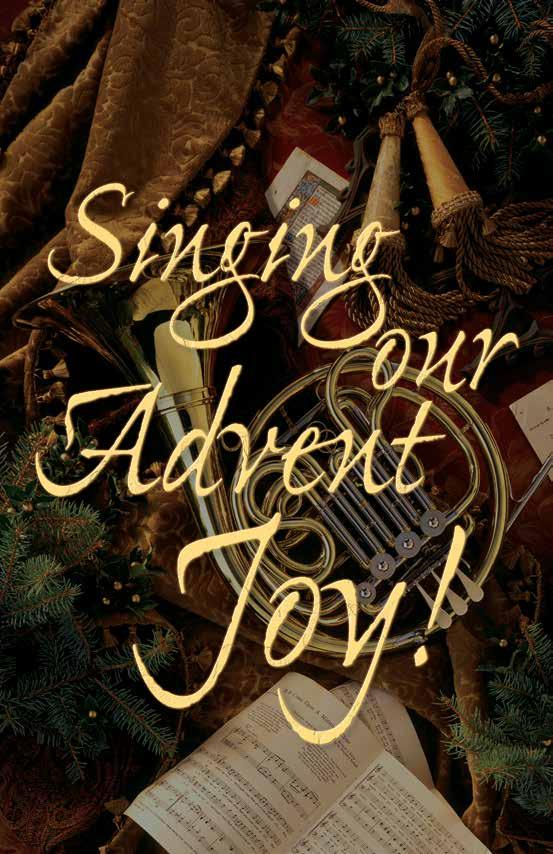
1 minute read
“It Came Upon a Midnight Clear”
I hadn’t thought ’til now to feel sorry for those angels. They start off so hopefully (v.1), believing the news of Jesus’s birth will change everything. “Peace on the earth, good will to all,” they sing to the shepherds (Luke 2:14). It is midnight; the sky is clear; the world is perfectly attentive, listening “in solemn stillness,” poised to be transformed.
But then it isn’t. So the angels try again—and this time they have to work a little harder. They “unfurl” their wings and push their way past the clouds forming in the no-longer-clear sky, singing more loudly to overpower the “Babel sounds” we weary people make as we build our worldly kingdoms (v.2). Still they fail to get our attention.
Advertisement
Two thousand years of war and sin go by. The world becomes so noisy that we have trouble hearing the angels’ glorious song altogether (v.3). The angels cannot sing any louder; all they can do is wait for us to grow weary, to rest, and to “hush” enough for their message to break through (v.4).
I feel sorry for those angels, but even sorrier for us. What is it about us that pushes away the message of peace? We yearn to escape the war and the sin, the weariness and the babble, but instead we amp it up. Something is seriously wrong with us.
I am somewhat reassured by the fact that the angels keep on singing whether or not I hear them. “Heaven’s all-gracious king” has come and is coming; God has brought peace to the world by way of the Christ child, whether I recognize it or not.
But the story told in this carol disturbs me, because it attaches an uncomfortable “or else” to the gospel of grace. There is something I have to do to have it take actual effect. It is this: I have to find a way to live with a perception of Christ’s coming, otherwise there is no way I can be changed by the reality of it.
Dare we hope that Christmas 2020 will find us weary enough to hush, so we might finally hear the angels’ song and experience peace?
– Reverend Dr. Cynthia L. Rigby The W.C. Brown Professor of Theology


